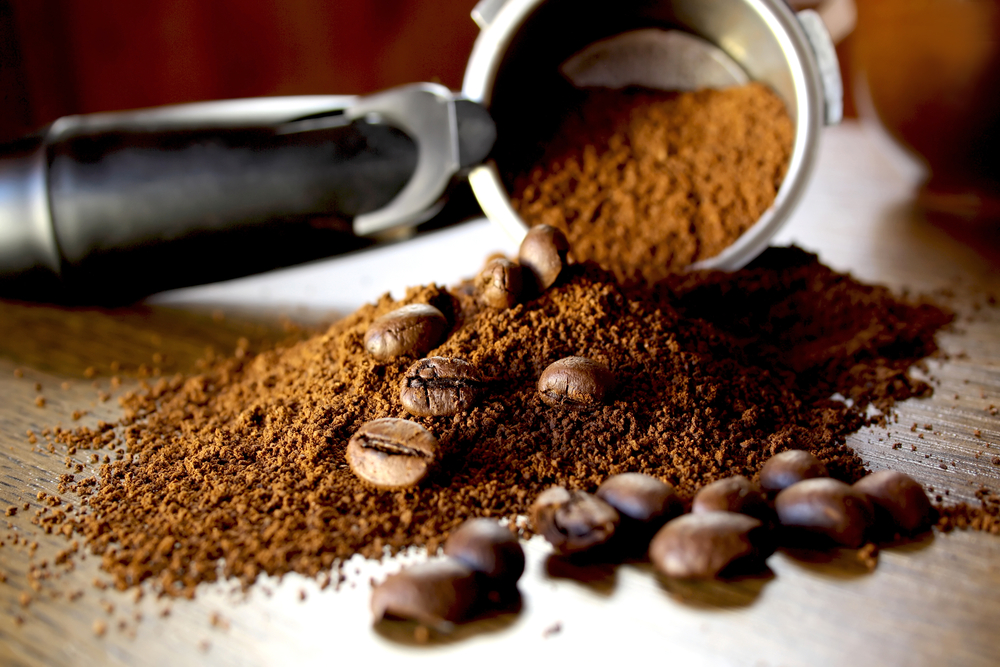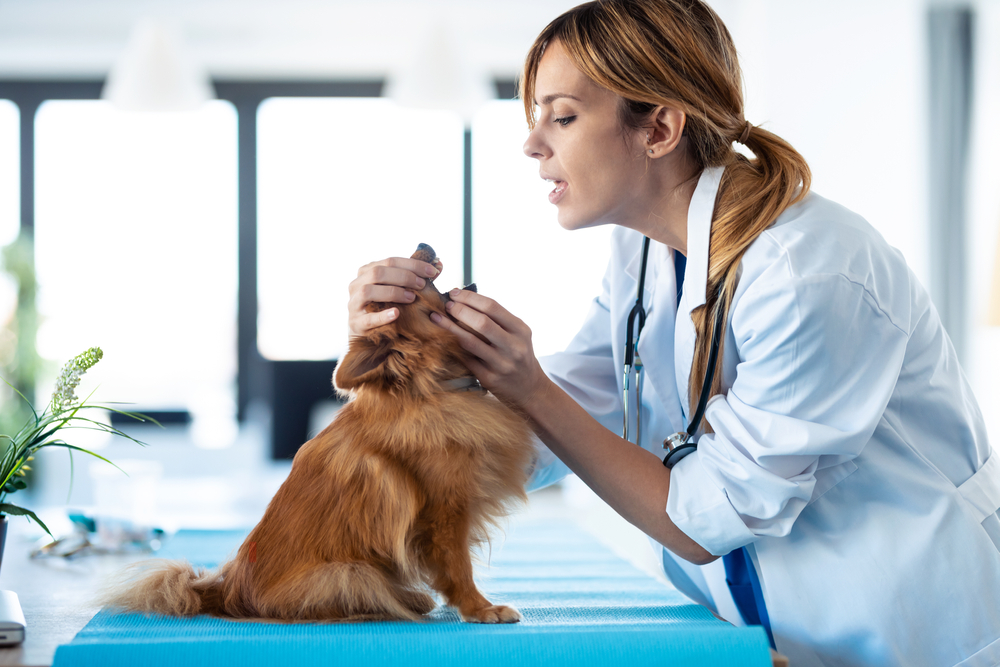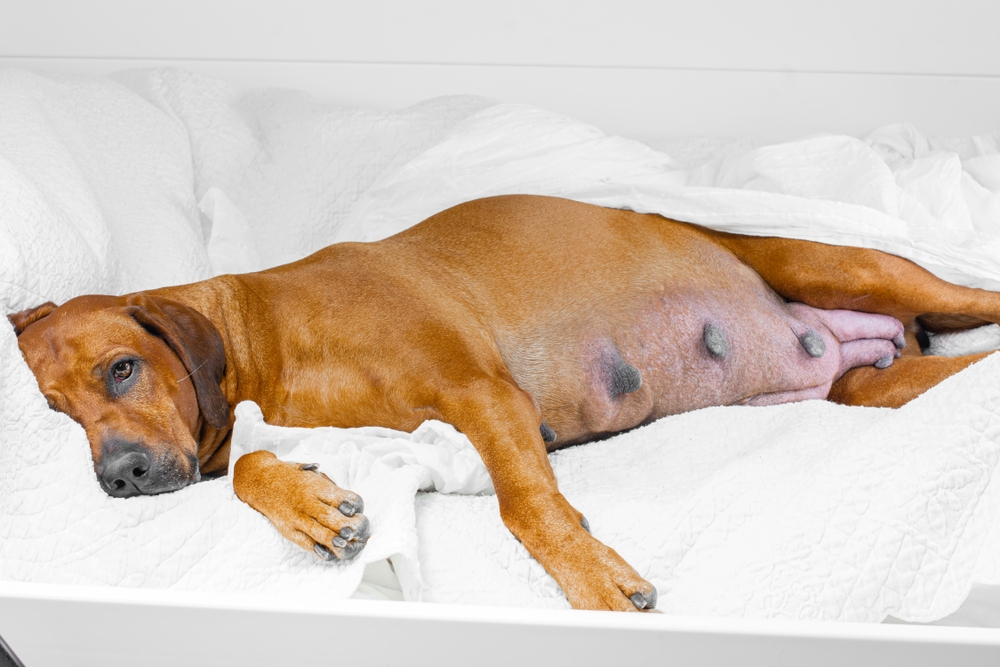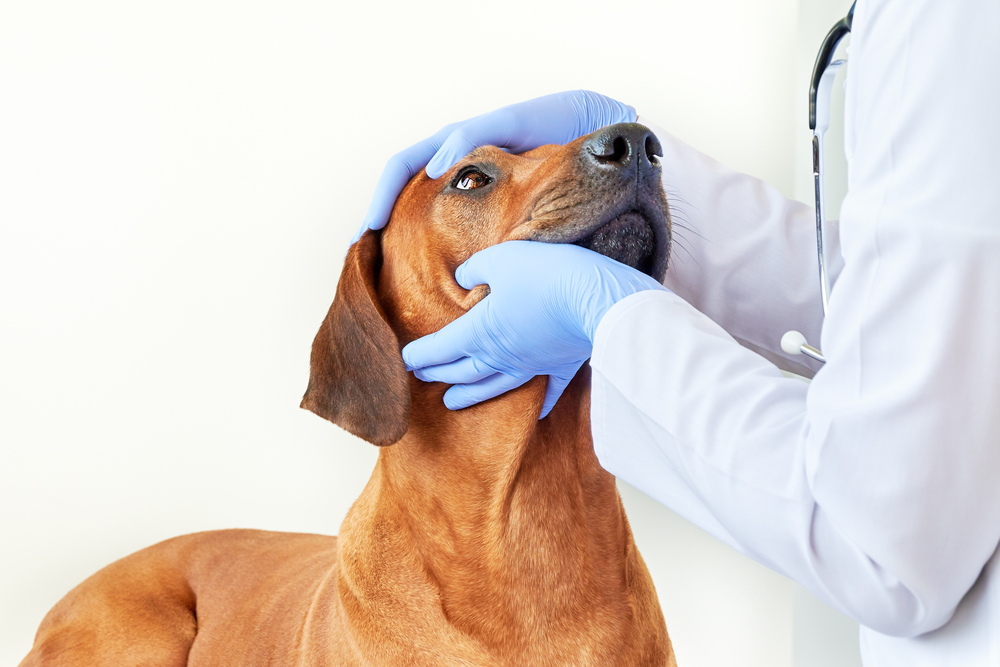Click to Skip Ahead
If your dog has eaten coffee grounds, they could be at risk of caffeine poisoning, depending on their size and how much they’ve eaten. Dogs are sensitive to the effects of caffeine, much more so than humans, and can experience severe side effects or even die from eating coffee grounds.
If your dog has just eaten coffee grounds, you must take immediate action; waiting until they show signs of toxicity generally carries a worse prognosis.

What Should I Do if My Dog Ate Coffee Grounds?
Unfortunately, coffee grounds have a higher caffeine concentration than liquid coffee. Roasted coffee beans contain 0.8–2.5% caffeine. Coffee beans that have been used to brew coffee already will have around 0.3–0.8% caffeine, so they are a little less risky than unused coffee grounds.
Despite that, it doesn’t take a lot of caffeine to cause problems in small dogs, and if your giant dog has eaten moderate to large amounts of coffee grounds, even spent coffee grounds, they are at risk. Just 3 teaspoons of coffee grounds can cause signs in a 15-pound dog. If they eat 10 teaspoons, the signs could be severe.
- If your dog consumes coffee grounds, you must first gather some information. Estimating how many grams of coffee grounds your dog could have eaten and determining whether they were spent will help you calculate the risk for your dog.
- You also need to know your dog’s approximate weight and the timeframe when they could have eaten the coffee grounds. For example, if you saw them eat the coffee grounds, what time did this happen? Or, if you came home and found they got into the coffee grounds, how long were you out for? Ask other members of your household for help if you’re not sure.
- The next step is to make a phone call. Your local vet or emergency clinic can give you advice about what to do in your situation. You can also call Animal Poison Control (888) 426-4435 or the Pet Poison Helpline (855) 764-7661 for advice. These experts will be able to determine how risky the coffee ground ingestion is for your dog and give you advice about the next steps.
If you need to speak with a vet but can’t get to one, head over to PangoVet. It’s an online service where you can talk to a vet online and get the personalized advice you need for your pet — all at an affordable price!

Why Is Caffeine Toxic for Dogs?
Caffeine, along with theobromine, the other toxic ingredient in chocolate, belongs to a class of drugs called methylxanthines. These drugs act as stimulants, cause calcium to accumulate within cells, which alters muscle function, and increase the levels of hormones like catecholamines. Coffee, sodas, tea, chocolate, and diet pills all contain various amounts of caffeine.
Caffeine exerts its effects on the central nervous system, the cardiovascular system, and the gastrointestinal tract. Signs can sometimes be seen within 30 minutes and usually within the first 2 hours. This is because caffeine rapidly enters the system and circulates through the body; think about how long it takes you to feel the effects of your morning coffee.
- Hyperactivity
- Restlessness
- Anxiety
- Vomiting
- Diarrhea
- Increased thirst
- Urinating more than usual
- Abnormal heart rhythm
- Racing heartbeat
- Tremors
- Seizures
- Collapse
- Death
Can Dogs Have Coffee?
Dogs shouldn’t consume coffee. While a few licks are unlikely to hurt a large dog, coffee still carries a risk of caffeine poisoning. Other ingredients in coffee are unhealthy or even toxic for your dog.
For example, sugar and milk can cause gastrointestinal issues in some dogs and provide excess calories that could lead to weight gain. Macadamia nuts and cocoa beans are toxic to dogs, so they can’t have any macadamia milk or cocoa, which could be in coffee. The artificial sweetener xylitol, sometimes known as birch sugar, is also highly toxic to dogs.
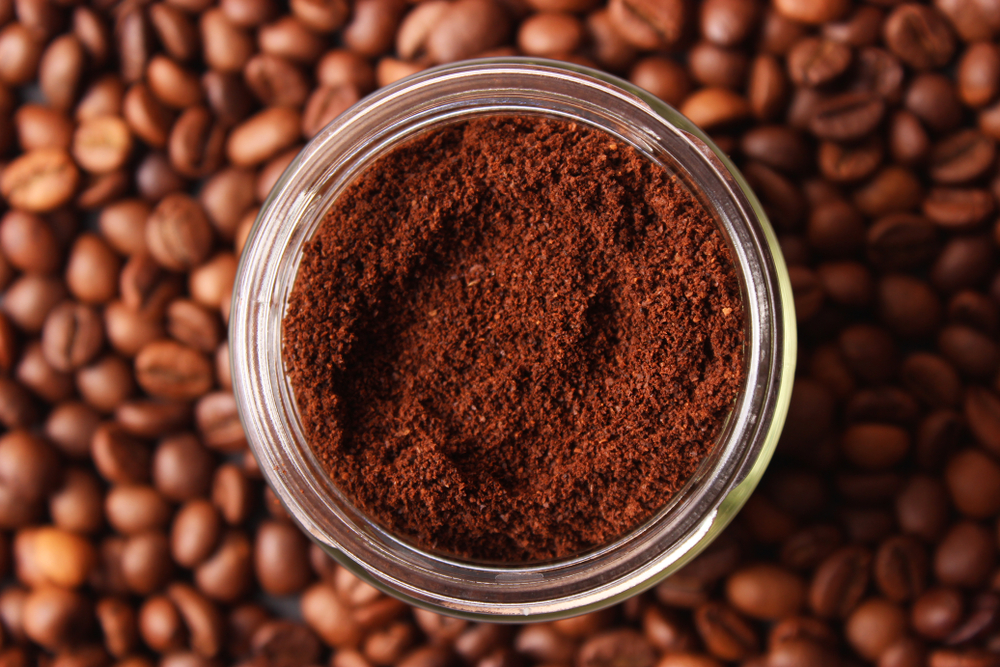
How to Prevent Caffeine Toxicity
Never give your dog any foods that contain caffeine, including coffee, chocolate, energy drinks, soda, diet pills, or caffeine pills. If you brew coffee at home, place the coffee grounds in a trash can with a lid so your dog cannot access them. Also, keeping the coffee beans in a cabinet or on a shelf your dog cannot access is best.

Conclusion
If your dog has eaten coffee grounds, you must treat this as an emergency because of the risk of caffeine toxicity. Calling the experts at Animal Poison Control, the Pet Poison Helpline, or your local vet will give you an idea of the risk of toxicity for your dog in your specific situation.
With timely treatment, your dog can make a full recovery, but unfortunately, severe cases can be fatal.
Featured Image Credit: melei5, Shutterstock

